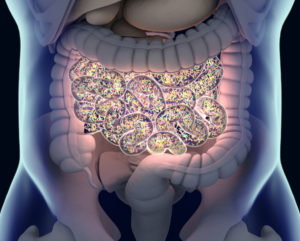Exocrine pancreatic insufficiency (EPI) is a condition affecting the pancreas, an organ located in the abdomen that plays an essential role in converting the food we eat into fuel for the body’s cells. The pancreas has two main functions: it helps with digestion, and it regulates blood sugar.
The pancreas produces enzymes that break down food and keep digestion moving properly. For those with EPI, the pancreas does not make enough of these enzymes, which prevents the absorption of nutrients and disrupts digestion.
There are numerous gastro-intestinal symptoms of EPI, ranging from mild to extreme including:
- Gas
- Bloating
- Diarrhea
- Abdominal pain
- Greasy, oily stools
- Foul-smelling stools
- Unexplained weight loss
Other symptoms can include fatigue, dizziness, dry skin, brittle nails, hair loss, depression, irritability, and problems with memory and concentration. These can occur when the body does not absorb the necessary fats and nutrients from food.
EPI is often the result of a variety of conditions, such as
- Pancreatitis
- Cystic fibrosis
- Pancreatic cancer
- Celiac disease
- Crohn’s disease
- Ulcerative colitis
- Diabetes
There are diagnostic tests your doctor can perform if he or she suspects you have EPI. Once EPI is confirmed, the most common form of treatment is pancreatic enzyme replacement therapy (PERT). PERT supplements are capsules that contain a mixture of digestive enzymes that those with EPI cannot produce to help them break down fat and assist with digestion.
It is also recommended that people with EPI eat a healthy diet rich in fruits, vegetables, whole grains, and healthy proteins. It is also important not to avoid foods with fats, as these are essential to maintaining a healthy weight. However, it is best to stick with healthy fats, like salmon, avocado, and nuts rather than unhealthy trans or saturated fats found in red meats, dairy products, and fried foods.
To schedule an appointment with a gastroenterologist at Flushing Hospital’s Ambulatory Care Center, please call 718-670-5486.
All content of this newsletter is intended for general information purposes only and is not intended or implied to be a substitute for professional medical advice, diagnosis or treatment. Please consult a medical professional before adopting any of the suggestions on this page. You must never disregard professional medical advice or delay seeking medical treatment based upon any content of this newsletter. PROMPTLY CONSULT YOUR PHYSICIAN OR CALL 911 IF YOU BELIEVE YOU HAVE A MEDICAL EMERGENCY.


